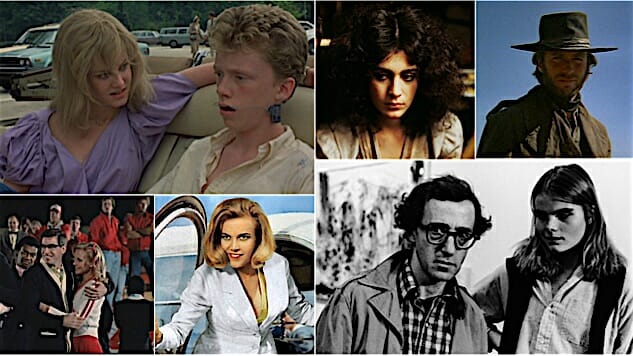10 Movies that Wither Under the Light of #Metoo

Here at Paste, we love all kinds of movies, new and old. As much as we love to look at some of our favorite films with rose-colored glasses, we also acknowledge that our culture changes, hopefully progressing with each growing pain, while the movies themselves stay the same. What could have been seen as funny or innocent at a certain time can seem cruel, off-putting, and sometimes even downright criminal as years go on. We all have those movies that we still love, but concede that they might not have aged well as they relate to sensitive cultural issues.
I don’t know if we’re always ready to fully dismiss a movie or a director we like because of these problems that might surround the work, but admitting that these issues exist and opening them up to conversation is hopefully a step in the right direction. With that in mind, here are ten films that approach sexual assault or bullying with either a disturbingly light tone, or worse yet, in a way that appears to condone such behavior.
1. Revenge of the Nerds (1984)
Offensive Acts: Rape, voyeurism, revenge porn

The ’80s college sex comedy classic about a bunch of lovable underdogs gaining the respect of a bunch of shallow sorority girls and frat jocks can easily be rewritten as a horror movie told from the perspective of the female characters today. First on the block is voyeurism, as the titular nerds install cameras in the sorority house, so they can ogle on the girls’ naked bodies from the comfort of their living room. Then comes revenge porn, as they use the naked picture of one of the girls to sell pies. Last and certainly the least, one of the nerds straight-up rapes his crush by pretending to be her boyfriend, and only gets away with it because “he was good at sex.” Apart from these obvious gross acts, the social dynamic of the film would also have to be completely retooled for modern sensibilities, since the nerds would be the narcissistic bullies this time around, thanks to the tech boom.
2. Animal House (1978)
Offensive Acts: Voyeurism, flippant jokes about rape

We move onto the main reason Revenge of the Nerds was produced in the first place, the grandpa of frat-centric college sex comedies, Animal House. John Belushi’s hilariously unhinged performance of the all-reptilian-brain John “Bluto” Blutarsky is still the highlight of this classic, but an iconic scene where he peeks at naked sorority girls, after grinning to the camera no less, looks more creepy than scrappy. Add to that a supposedly humorous scene where a devil and an angel on a character’s shoulders egg him on to rape a passed out, underage girl with her breasts out, and Animal House turns into a bit of a mixed bag. Well, there’s always the more innocent and still funny scenes, like the iconic one where Bluto rightfully destroys a hippie crooner’s guitar.
3. Goldfinger (1964)
Offensive Act: Rape

In the olden times, male assertiveness over women used to be seen as a clear show of superior masculinity. These days, depending on the level of said assertiveness, some of these acts shown in movies might come across as a lot more rape-y than they did at the time. James Bond is supposed to represent the poster boy of such masculinity, so it’s no surprise that some of his sexual conquests might appear to be, well, a bit ill gotten today. The chief of these is the scene where Sean Connery’s Bond pretty much puts his entire body weight on Pussy Galore (Honor Blackman) and goes to town on her. (The sexism in Bond names requires a whole other discussion.) We’re meant to think that Ms. Galore eventually consents a couple of frames before the screen fades out, but it honestly looks like she’s giving in after not being able to fight Bond off. In any case, Bond’s act would clearly be considered sexual assault today.
4. Marnie (1964)
Offensive Act: Marital date rape

Here’s Connery again. As respected of an actor as he is, let’s remember that he’s also the guy who commended the act of a man beating “his” woman, so it makes sense for him to appear in some problematic films. Add to this Hitchcock’s creepy obsession with star Tippi Hedren and Marnie’s off-putting politics around sexual abuse, and this ’60s classic looks uncomfortable in ways that Hitch might not have intended. When Hedren’s titular character is unable to have sex with her new husband, due to a clear trauma from her past, Connery’s husband character’s solution is to go ahead and rape her anyway. A lot of people still believe that rape doesn’t apply to married couples—take a gander at the statements made by our current cheeto-in-chief during his first divorce trial—so this scene in Marnie wasn’t a big deal in 1964. Hopefully we’ve come further than that.
-

-

-

-

-

-

-

-

-

-

-

-

-

-

-

-

-

-

-

-

-

-

-

-

-

-

-

-

-

-

-

-

-

-

-

-

-

-

-

-














































